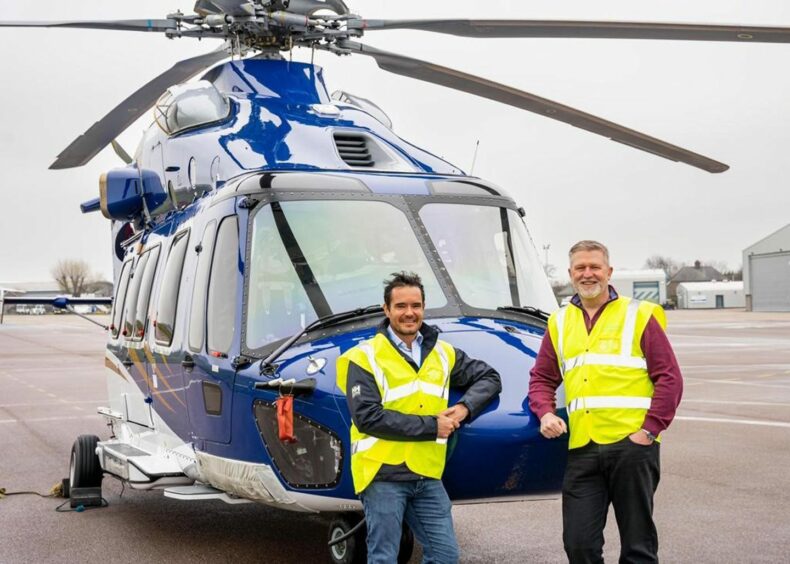
Offshore Helicopter Services, which flies to the North Sea from its Aberdeen base, is making job cuts due to “lower than normal client activity.”
The North Sea helicopter operator confirmed that it had decided to reduce staffing levels due to a “tough economic climate, as well as the fallout from Government decisions around the windfall tax, and lower than normal client activity levels.”
Staff were informed at town hall on Monday, Energy Voice understands, while attempts have been made to renegotiate contracts. The number of jobs being cut has not been disclosed.
An OHS spokesperson said: “Offshore Helicopter Services can confirm staff have been advised there will be an important review of all operations to ensure the company better meets the needs of the current competitive business environment.
“This process is likely to include the requirement to reduce our staffing levels and review our equipment requirements to ensure we are operating as efficiently as possible while still effectively servicing our customers.”
The north-east business says that customer activity has gone down by 15 to 20% year-on-year.
OHS said it has been carrying out talks with its customers “for some time” to find resolutions.
“The decisions we will make over the coming months will be fundamental to the future success of the business,” a spokesman added.
The firm was bought over by the South African business, Ultimate Aviation, in January following “an uncertain period,” according to Paul Kelsall, managing director of Offshore Helicopter Services (OHS).
Earlier this year, CHC Helicopters announced it would sell OHS to Ultimate Aviation Group after its takeover of the firm was blocked by the UK Competition and Markets Authority in 2021.
Before the sale to Ultimate Aviation was approved, the North Sea helicopter operator with a base in Dyce experienced “22 months of uncertainty,” director of consultancy Air & Sea Analytics, Steve Robertson said.
Windfall tax foes
Offshore Helicopter Services is not the first firm to claim the Energy Profits Levy (EPL), or windfall tax, is the reason for job cuts.
The UK’s largest producer of oil and gas, Harbour Energy, also blamed the controversial fiscal policy for its decision to cut 350 jobs.
When asked how many jobs will be cut by OHS, the firm said it cannot provide details as the process is ongoing.
OHS added: “Discussions are ongoing with union representatives and management has given an undertaking the process will be open and transparent, as well as keeping staff fully informed.
“In the meantime, we remain completely focused on business as usual, delivering safe, high-quality aviation support to our customers.”
Pilots union BALPA has been contacted for comment.
OHS’ ‘uncertain period’
In 2021 rival helicopter firm, CHC bought the then Babcock helicopters, now known as OHS, however, the UK competition standards watchdog claimed the acquisition would “significantly reduce rivalry” in the North Sea and blocked the sale.
Paul Kelsall, managing director of OHS, described that the approval of Ultimate Aviation’s take-over warranted a sigh of relief.
Mr Kelsall said: “I think it should be recognised that our staff kept their focus through an uncertain period.”
Following the takeover, Ultimate Aviation said that OHS would be bringing two new helicopters to its base in the north-east of Scotland.
At the time of the sale, Shaun Roseveare, chief executive of Ultimate Aviation said: “We’ve got two 92s coming onto the fleet before June and all the old ones are being retired, so there’s a lot of modernisations coming fleet.”
Mr Roseveare added: “There’s a lot in the pipeline” but “we haven’t signed anything yet.”
The firm said: “OHS said the review of all assets was ongoing and that safety remained the number one priority.”
Recommended for you


 © Supplied by Offshore Helicopter
© Supplied by Offshore Helicopter